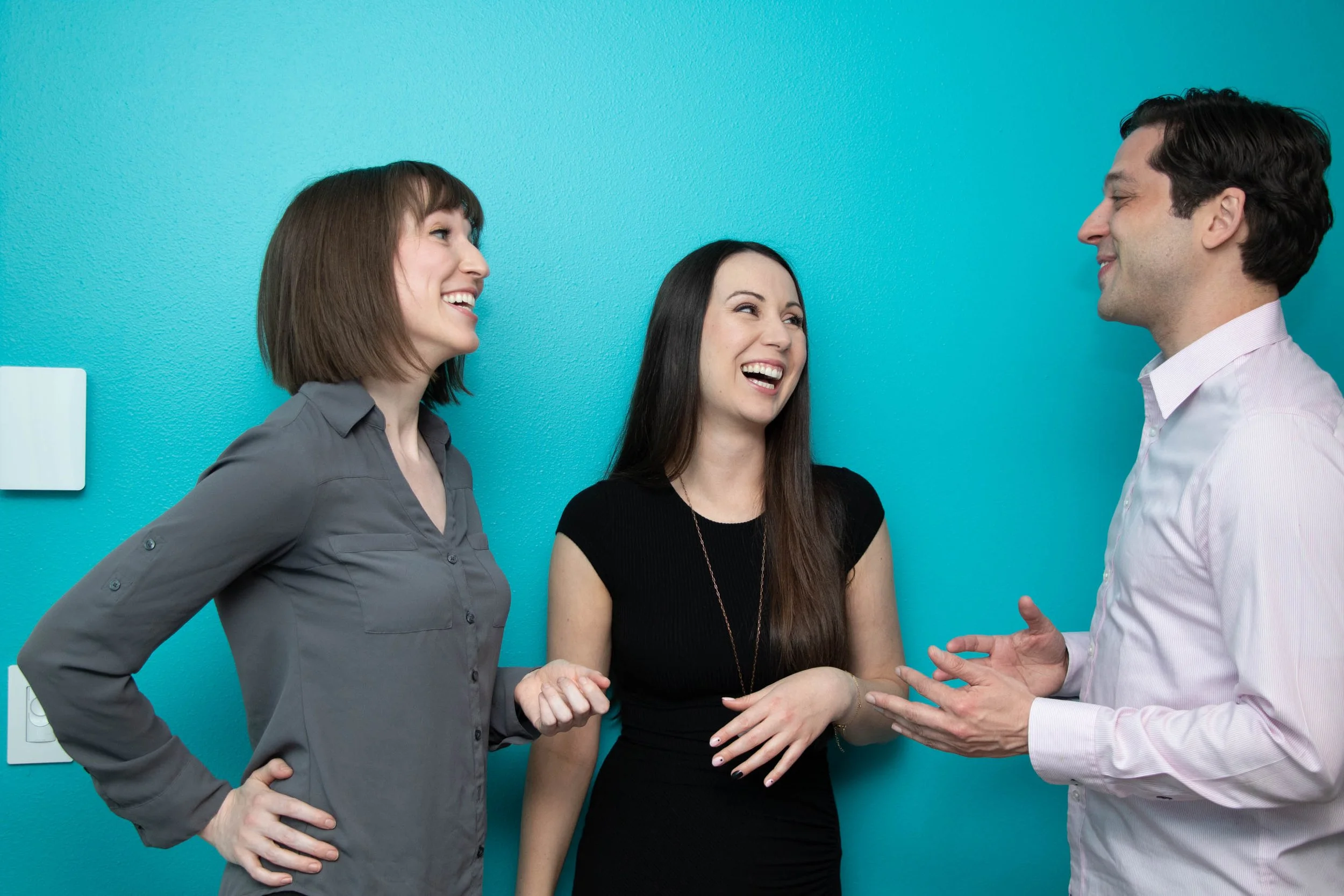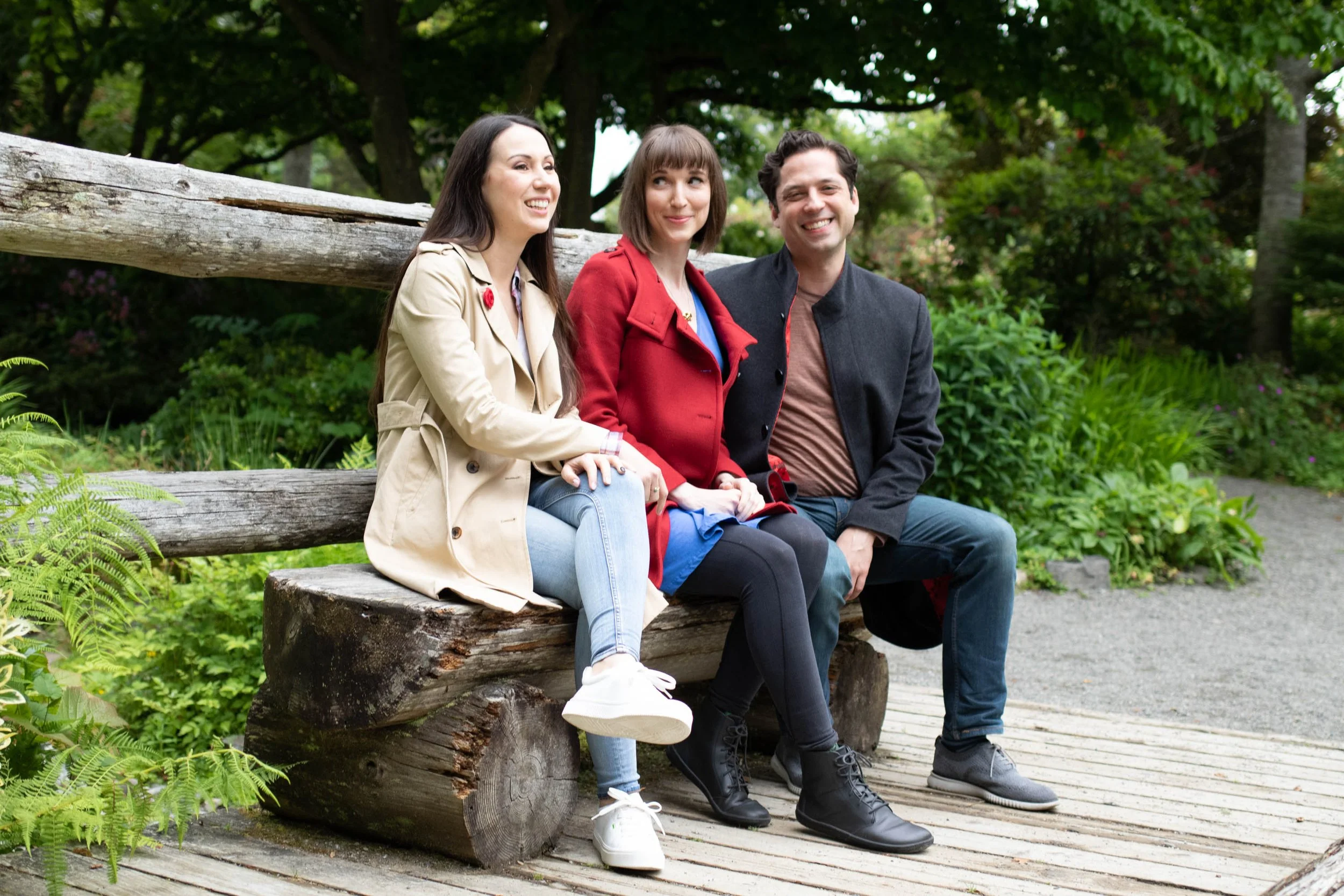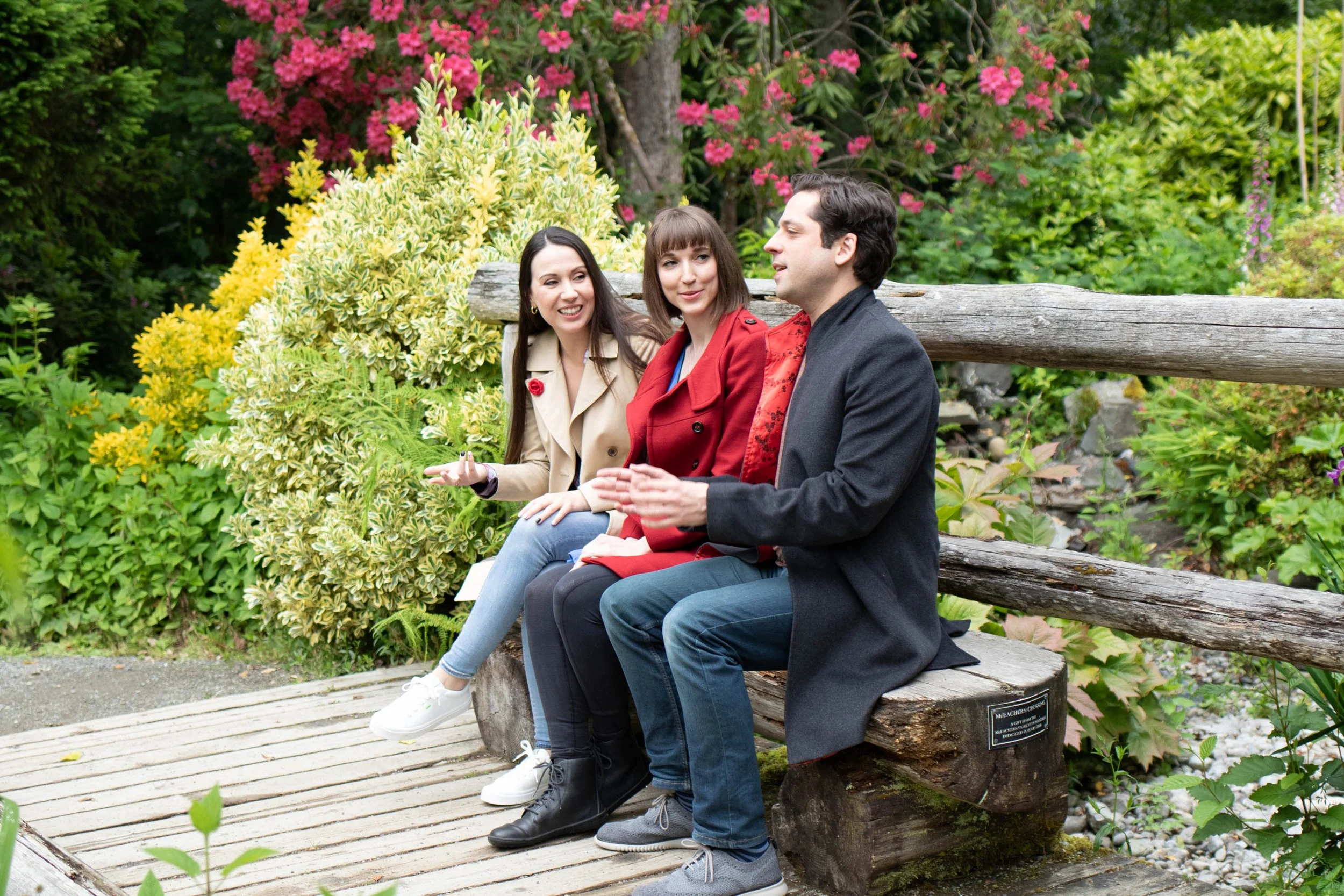We're back with another full-length Q&A episode where we answer questions from our Patreon supporters. Today we'll be discussing cPTSD and over-analyzing, resources for polyamory support, and non-hierarchical polyamory and plus ones.
If you'd like your question answered on the next Q&A episode, consider joining our Patreon community!
Today we're very excited to be showcasing an episode from our good friend Libby Sinback's podcast, Making Polyamory Work. In this episode, she's discussing unmet needs in polyamorous relationships from multiple angles.
Libby Sinback is a queer, polyamorous mom, the host of the podcast Making Polyamory Work and a coach for people who want extraordinary relationships while choosing to live and love outside the status quo. She is certified in Relational Life Therapy, and has coached hundreds of people in breaking their unhelpful relationship patterns so that they can have happier, more nourishing love in their life. Libby believes love is why we're here, and how we heal.
Today we're excited to be joined by Brett Chamberlin from OPEN! Brett (he/him) is a social impact organizer with over a decade of leadership experience building a more just and joyous future. He is the founder and Executive Director of OPEN, the Organization for Polyamory and Ethical Non-monogamy. Prior to launching OPEN, Brett worked in the environmental movement as the Director of Community Engagement at The Story of Stuff Project and the co-founder of the Post Landfill Action Network. He lives in the California Bay Area.
We'll be chatting with Brett about progress for non-monogamous folks over the past few years, from securing rights to overall awareness of non-monogamy as a relationship style.
Today, join us for a hopeful discussion about depression! We'll be sharing some personal anecdotes, some research about depression, and some tips for dealing with depression when you or your partner are experiencing bad mental health episodes.
Read MoreToday we're talking about friendship, love, and romance with Rhaina Cohen. Rhaina is the author of the bestselling book The Other Significant Others: Reimagining Life with Friendship at the Center. She's an award-winning producer and editor for NPR's documentary podcast Embedded. And she's written about social connection and policy for The New York Times, The Atlantic, The Washington Post and other outlets.
Find her on Instagram @rhainacohen, or her newsletter here.
We're back with another full-length Q&A episode answering questions from our supporters on Patreon. For today's episode, we'll be discussing what to do when you're in love with someone who hasn't disclosed that you're in love to their nesting partner, getting clarity on why you might want additional partners, and how to stay friends with an ex who has hurt you badly in the past.
If you'd like your question answered on the show, consider joining our Patreon!
Today, Dr. Marie Thouin is back to talk about compersion and her new book on the subject.
Dr. Marie Thouin is a Mindful Dating & Relationship Coach who supports people of all backgrounds and relational orientations to create intentional and vibrant love lives. She is a leading expert on the topic of compersion and the author of the groundbreaking book, "What is Compersion? Understanding Positive Empathy in Consensually Non-Monogamous Relationships.” Marie has published seminal research studies, the first-ever encyclopedia entry on compersion, and is the creator of www.WhatIsCompersion.com, a popular website that features her research, blogs, and other resources on compersion. She has been featured in several magazines and podcasts, including ELLE, the Savage Lovecast, and Multiamory.
Check out Marie’s new book here!
Read MoreToday, we're talking about fear, specifically how it can affect our relationships and what happens when we lead with fear. We're going to discuss fear and what it means to lead with it in a relationship, as well as some ways we can consciously move away from being led by fear to have happier, more fulfilling connections.
Read MoreJoin us today for a very special discussion with Todd Baratz. Todd is a renowned psychotherapist and sex therapist whose innovative approach to mental health and relationships has established him as a leading figure in his field. In addition to his clinical practice, Baratz is a prolific writer and speaker. His insights are regularly featured in various media outlets, where he discusses topics ranging from romantic relationships to individual mental wellness. He lives in New York City and Los Angeles. Learn more on Instagram under his handle @YourDiagnonsense.
Visit his website at toddbaratz.com and to order his new book, How to Love Someone Without Losing Your Mind.
Read MoreThis week we have a throwback episode going back six years ago to when we discussed three powerful communication tools to strengthen your relationships: switchtracking, bids, and microscripts. We're going to explore each of these concepts, provide examples of each, and talk about some practical and actionable tips to help you use them to foster better communication in your relationships.
Read MoreThis week we're talking about breaking up again, specifically about the process of grieving a breakup through the lens of the five stages of grief. Long relationships in particular can have difficult breakups and it can be hard to know where to turn. We're going to explore the stages of grief, healing, and recovery, and hope our musings can be helpful for people going through hard breakups.
Read MoreThis week's Q&A episode is circling back to relationship anarchy and how to navigate it when most people either don't subscribe to it or don't even know what it is.
If you want your question answered on a future Q&A join our Patreon community at www.patreon.com/multiamory.
This week, we're exploring the difference between loving someone and liking someone. We're specifically discussing how it is we can love someone but also not like being around them very much, and if one feeling is more important than the other. We'll also be talking about how knowing the distinction between liking and loving can help us show up in our relationships, and as always we'll have some takeaways to help you navigate these distinctions.
Take the Love & Like test we talk about in the episode here: https://www.idrlabs.com/love-and-liking/test.php
Read MoreToday we're talking about what it means to "settle" in a relationship. We'll be discussing if it's okay to settle and what realistic expectations of a relationship should be, compromise, and whether or not we should hold out for a perfect relationship.
We're going to look at research and surveys about finding partners who meet expectations, weigh some pros and cons of compromising versus never settling, and how someone can know if they're settling or being too inflexible.
This week we're tackling a question about sneaky hierarchy, aka sneakiarchy. We're talking about how to recognize it in future relationships, how to recognize when you might be creating it by accident, and more.
If you want your question answered on a future Q&A episode, consider becoming a member of our Patreon community! Visit www.multiamory.com/join to sign up.
Read MoreToday we're talking about love languages, and taking a critical look at them to discuss whether or not they're actually as important as we make them out to be. We're going to go over some of the key assumptions behind the love languages and of course, look at what the research has to say. And finally, we discuss both the potential benefits and the possible pitfalls of relying too heavily on the love languages as a framework.
Read MoreThis week's Q&A episode is discussing couples' privilege and how to be cognizant of when it may affect interactions with other potential partners.
If you want to submit a question to be answered on one of the extra Q&A episodes we're doing for the next few months, become one of our Patreon supporters at www.patreon.com/multiamory.
Today, we're talking about feeling possessive over a partner, the psychology and science behind it, and how even when non-monogamous, possessive feelings can still arise and create challenges for us. We'll even be discussing some times when a little bit of possessiveness can be a good thing!
Read More


















